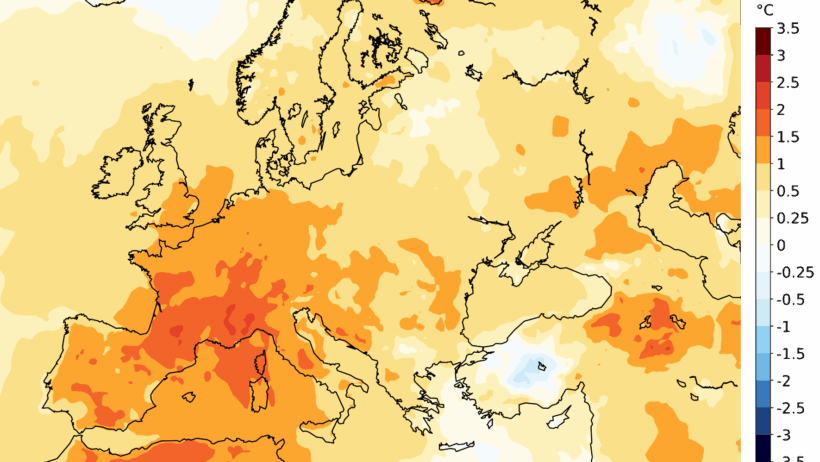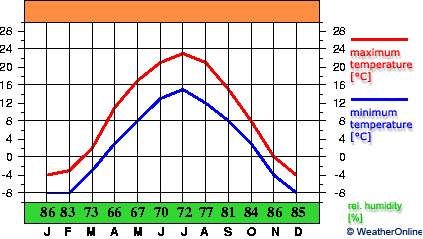Climate change, specifically global warming, is an existential concern that transcends borders, and Europe is at the forefront of grappling with its myriad implications. The perception of global warming across the continent is a complex tapestry woven from diverse cultural, economic, and political threads. While some nations exhibit proactive stances, others display skepticism or inertia, leading to a multifaceted discourse on environmental change.
In Northern Europe, nations like Finland and Sweden embrace an environmentally progressive ethos. The Nordic Model emphasizes sustainability, harnessing renewable energy sources like wind and hydroelectric power. This region’s populace generally perceives global warming as a pressing threat, demanding immediate action. Civil society organizations frequently mobilize campaigns focused on reducing carbon emissions, and government initiatives abound, aiming to transition to a greener economy.
In stark contrast, Southern Europe faces a different challenge. Countries such as Greece and Spain, grappling with severe heat waves and droughts, have begun to internalize the impacts of climate change directly. Local farmers voice concerns as shifting weather patterns threaten traditional agriculture, a significant part of their economies. The tourism industry, a vital economic driver, also suffers from the consequences of global warming. However, public awareness varies; while younger generations express urgency regarding climate action, older demographics might remain more skeptical, influenced by lingering traditional beliefs.
Central and Eastern Europe present yet another perspective. Nations like Poland and Hungary have historically relied on coal as their primary energy source, resulting in entrenched economic structures resistant to change. Here, the conversation around climate change often intertwines with discussions about energy security and economic stability. The dominant discourse tends to emphasize job preservation over environmental concerns, creating a climate of uncertainty around the necessity for immediate action. This complex relationship with fossil fuels can skew the perception of global warming as an abstract problem rather than a present danger.
Across the continent, the disparity in perception can be illuminated through the lens of media coverage. In Western Europe, progressive reporting often highlights the urgency and scientific consensus on climate change. Documentaries, public service announcements, and news articles regularly depict the realities of a warming planet, galvanizing public opinion toward proactive measures. Activist movements, such as those championed by youth climate strikers, gain traction through extensive media coverage, amplifying the narrative that immediate action is essential to avert catastrophic consequences.
Conversely, state media in some Eastern European countries may downplay climate change or prioritize economic narratives instead. This leads to a bifurcated understanding of the phenomenon, where citizens may remain unaware of the broader, scientifically established trends underpinning global warming. Consequently, climate change can be perceived as a non-issue or subject to debate rather than a settled scientific fact.
The political landscape within Europe also significantly shapes the public’s perception of climate change. The European Union has undertaken substantial initiatives aimed at mitigating climate change effects, such as the European Green Deal, which seeks to make Europe the first climate-neutral continent by 2050. However, varying political ideologies pose challenges. In some nations, right-wing populist movements may reject scientific consensus, leading to public skepticism about climate initiatives, while in more liberal democracies, climate policies often receive enthusiastic support. This variance can affect voter behavior, influencing who gets elected and which policies are prioritized.
There is also a notable generational divide in perceptions of global warming. Younger individuals across Europe are more likely to acknowledge climate change as a critical threat and regard it as a priority that demands immediate action. Campaigns led by youth activists emphasize the necessity for sustainable practices and climate justice, demanding accountability from older generations. As this younger demographic becomes increasingly influential in the political arena, they are likely to reshape discussions and policies around global warming throughout Europe.
Educational institutions play a pivotal role in shaping awareness and engagement with climate change. Universities across the continent are integrating sustainability into curricula, fostering a generation that is not only aware of the potential ramifications of global warming but also equipped to tackle the challenges ahead. Research initiatives are frequently focused on climate science, sustainable technology, and environmental policy, creating a robust knowledge base from which students and professionals can draw in their future endeavors.
However, despite the strides made in environmental awareness, there remains a significant challenge associated with misinformation. Social media platforms are rife with disinformation that can distort perceptions of climate change, casting doubts on scientific consensus. Ensuring that accurate information prevails in the public discourse is crucial. Promoting scientific literacy will help individuals discern factual evidence from fallacy, thereby fostering a coherent understanding of global warming across all segments of society.
In summation, Europe’s perception of global warming is as diverse as its geography itself. While Northern and Western Europe generally demonstrate a proactive commitment to combating climate change, Southern and Eastern regions face unique challenges and varying degrees of skepticism. A multi-pronged approach addressing education, media, politics, and generational differences will be essential to unify efforts and perceptions regarding climate change. The discourse surrounding this pressing issue must evolve to encompass differing viewpoints, fostering a shared sense of responsibility and a collective drive towards sustainable change. Only through comprehensive, inclusive dialogue can a cohesive and impactful climate strategy emerge, ultimately paving the way for a more resilient continent.








